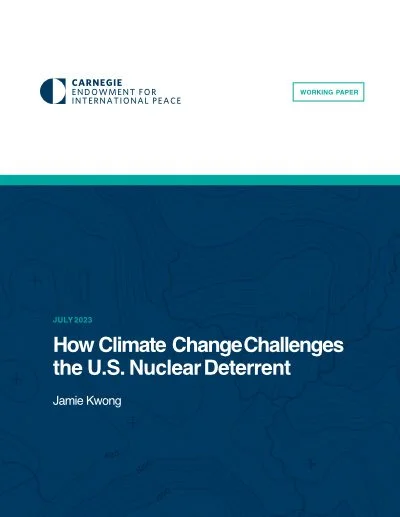DIAS, TALITA DE SOUZA; HAKMEH, JOYCE; MESSMER, MARION
From the document: "Many states are becoming more interested in nuclear energy as a means to help achieve environmental goals, economic development and energy security. A declaration by 25 countries - including the US, the UK and Canada - during the COP28 UN [28th Conference of Parties to the United Nations] Climate Change Conference in December 2023 exemplified this trend, announcing an ambition to triple nuclear energy capacity by 2050 as part of efforts to achieve net zero greenhouse gas emissions and limit global warming. The commitment emphasized not only the potential role of nuclear energy in supporting sustainable development but also the consequent importance of maintaining safety, sustainability, security and non-proliferation standards in the civil nuclear industry. As growth in the use of nuclear energy would imply that more nuclear power plants will come into operation, considerations of safety and security in the civil nuclear industry - including around cybersecurity, the specific subject of this paper - are likely to become more critical than ever. Since Russia's full-scale invasion of Ukraine in February 2022, there has been a notable shift in many Western countries' energy security strategies. [...] This surge in interest can be attributed in part to nuclear energy's reliability, resilience and low carbon footprint. [...] However, any expansion of nuclear capabilities also brings new challenges, particularly in cybersecurity. Cyber operations targeting civil nuclear systems have been reported worldwide. Such operations pose significant risks, with potential harms including information theft, equipment malfunction, disruption of energy supplies, environmental damage and health impacts. The risks are prevalent both in peacetime and during conflicts."
ROYAL INSTITUTE OF INTERNATIONAL AFFAIRS. JUL, 2024.





